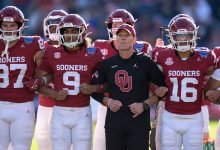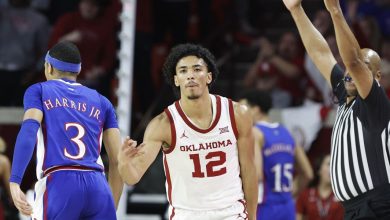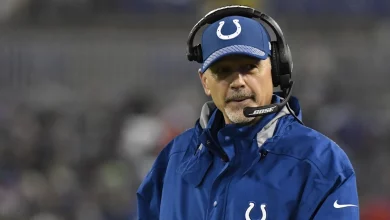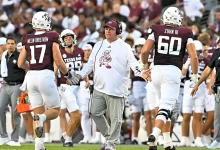Whether justified or not, Arch Manning significantly contributes to Texas Longhorns’ top preseason ranking as the No. 1 team in the nation.
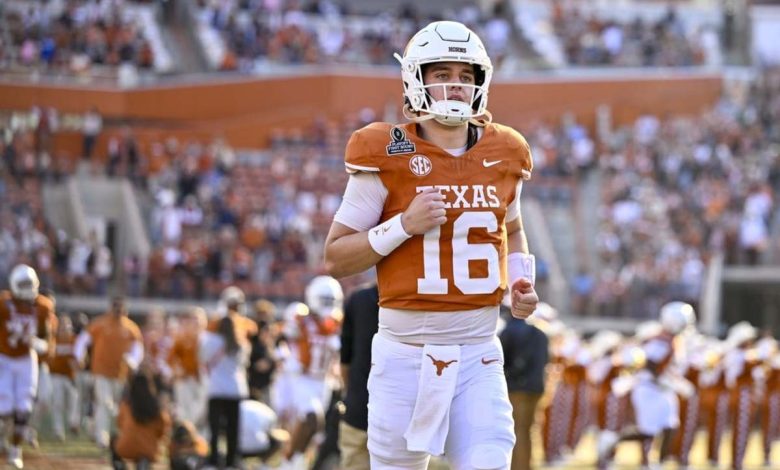
College football fans and analysts often debate the significance of individual players in determining team success, especially when it comes to highly touted recruits like Arch Manning. As the grandson of Archie Manning and nephew of Eli and Peyton Manning, Arch carries a football legacy that commands attention. His arrival at Texas has energized the program, raising expectations and fueling speculation about the team’s potential. While team performance depends on various factors—coaching, depth, schedule, injuries—the presence of a highly talented quarterback like Manning can be a transformative element. This analysis explores whether his contribution justifies the Texas Longhorns’ preseason No. 1 ranking, considering his background, skills, leadership qualities, and the overall context within college football.
Background and Recruitment Hype
Arch Manning’s recruitment saga drew national attention long before he stepped onto the college stage. Standing out as a five-star recruit, he completed a storied high school career with impressive stats and leadership qualities that made him a coveted prospect. His family pedigree—being part of the Manning legacy—added to the hype, but his own talent and poise validated that buzz.
When Manning committed to Texas, it was viewed as a pivotal moment for the program. The Longhorns, a storied program with recent ups and downs, saw Manning as a potential game-changer—an elite quarterback who could elevate their offense and provide leadership both on and off the field. This recruitment not only signaled Texas’s ambitions but also injected new energy into the team and its fanbase.
Potential Impact on Team Performance
A quarterback of Manning’s caliber can influence team success in multiple ways:
On-Field Performance: As the leader of the offense, a talented quarterback can elevate the team’s offensive efficiency. Manning’s arm strength, accuracy, decision-making, and ability to extend plays can lead to more scoring opportunities, reduce turnovers, and keep the team competitive against top opponents.
Leadership and Confidence: Beyond physical skills, Manning’s poise and leadership qualities can inspire teammates. His presence in practice and games can foster a winning mentality and help younger players develop their confidence.
Recruitment and Morale: Manning’s commitment can attract other top recruits, creating a ripple effect that strengthens the roster in future classes. His leadership can also uplift team morale, especially during challenging stretches.
Strategic Flexibility: A quarterback with Manning’s skill set allows offensive coordinators to craft more dynamic and unpredictable schemes, giving Texas an edge over opponents.
Assessing the Justification for the No. 1 Preseason Ranking
Preseason rankings are based on projected talent, returning starters, coaching staff, schedule difficulty, and recruiting prowess. The presence of Manning undoubtedly boosts Texas’s profile, but how justified is it to rank them No. 1 primarily because of him?
Talent Level: Texas boasts a talented roster beyond Manning, including standout skill players, a strong offensive line, and a solid defense. Manning’s addition complements this core, potentially making Texas an elite team.
Coaching and Systems: The Longhorns have invested in top-tier coaching staff, particularly on offense, to maximize Manning’s talents. A well-designed scheme can amplify his impact.
Recruiting Class and Depth: New recruits and returning starters bolster the team’s overall strength, making the ranking not solely dependent on Manning.
Schedule and Competition: Facing top-tier opponents early and throughout the season tests the team’s true strength. A talented quarterback can be decisive in close games, but team depth and resilience also matter.
While Manning’s presence is a significant factor, the ranking also considers the overall team composition and coaching strategy. Therefore, the pre-season No. 1 ranking reflects a combination of factors, with Manning as a pivotal contributor.
Broader College Football Context
The landscape of college football has evolved, with quarterback play often dictating team fortunes. Elite quarterbacks like Manning can be difference-makers in high-stakes games. His arrival at Texas is viewed as a potential catalyst that could put the Longhorns back among the national elite.
However, other programs also boast talented quarterbacks and depth. The competition is fierce, and a single player—no matter how talented—cannot guarantee a championship. Success depends on cohesive team play, coaching adjustments, injury management, and sometimes a bit of luck.
Potential Challenges and Considerations
While Manning’s talent is undeniable, there are challenges:
Transition to College Football: Adjusting to the speed and complexity of college defenses can take time. Expectations should be tempered with patience as he develops.
Supporting Cast: The offensive line, receivers, and running game must complement Manning’s skills. Weaknesses elsewhere could limit his impact.
Defensive and Special Teams Play: Football is a team sport; even a great quarterback needs a solid defense and special teams to succeed over a grueling season.
Pressure and Expectations: The spotlight on Manning could create added pressure, which could affect performance if not managed well.
Conclusion
In sum, Arch Manning’s arrival at Texas significantly enhances the team’s prospects, and his talent and leadership are likely key factors in their preseason No. 1 ranking. While it’s difficult to attribute the ranking solely to him, his presence undeniably elevates the team’s ceiling. The combination of Manning’s skills, coaching, roster depth, and schedule strength creates a compelling case for Texas’s lofty preseason position.
Whether justified or not, Manning’s influence embodies the optimism and high expectations surrounding the Longhorns. If he lives up to his potential, his impact could indeed be the defining factor that propels Texas to a successful season and perhaps a national championship run. Ultimately, college football remains a team sport, but having a player of Manning’s caliber can be the difference-maker in achieving those lofty goals.

